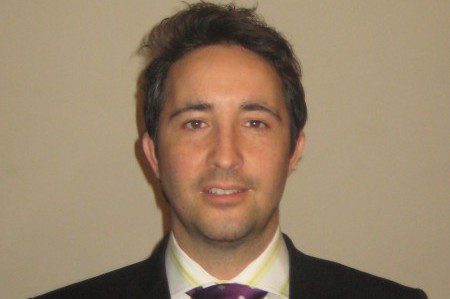Jack Sen, former parliamentary candidate for the UKIP party, highlights problems within South Africa. Sen was recently suspended by UKIP leader Nigel Farage for supremacist remarks made in defense of the white minority group of South Africa. Sen is not a racist, but rather a pragmatist that genuinely wants what is best for humanity. White nationalists, including internationalists, sent hate mail and called him a fascist because of his open-mindedness, and have menaced Sen. There is a vast lack of knowledge and ignorance when it comes to South Africa, and Sen has noticed this. Sen, who grew up in South Africa, has always had a passion and interest in the well-being of fellow citizens. The international media, according to Sen, schools the public into believing that all is well. Not so – the problems are whitewashed.
However, Sen assures the audience that the truth needs to be told, and that might not appeal to all the people who narrow-mindedly refuse to accept the cold, hard facts of current events in South Africa. There is the notion that blacks in South Africa have been disadvantaged by the minority group and that the land was stolen, and this accounts for whites being termed as evil. It does not matter that black tribes arrived in South Africa a short time before the Europeans and that the land in most parts of the country was not habitated. Land rights are a sensitive issue and debates around reform are ongoing.
Many would agree that blacks were better off under the apartheid era, yet the terrorist groups instigated by Communist countries filled the minds of leaders with the take-it-all mantra, and Sen will continue to raise awareness. Although abruptly suspended from the UKIP, for apparent racial remarks and broaching the subject of the South African white genocide, he raises the sensitive issues the world would rather forget.
Highlighting some of the problems, Sen pointed out some historical facts and said that in 1988, black South Africans owned 260 000 more vehicles than all the black African states together. The monthly income of blacks per capita in 1988 was R352 per month in South Africa, compared to less than R20 per month in Malawi and Mozambique. Complicated medical surgery was available to black citizens for less than a dollar, while Americans had to pay $15,000. It was recorded that up to 3,000 heart valve surgeries were performed each year in the capital, Pretoria.
A Canadian physician, Dr. Kenneth Walker, visited Soweto in the 1980s and made some startling observations. The houses were neat, well-kept and clean, and many had BMWs at the door. Dr. Walker said that less than two percent of homes were shacks, with neat buildings and lawns, compared to the decaying apartments in New York, Chicago or Detroit. Dr. Walker said that if forced to choose where to live, he would choose Soweto and observed that this city had more churches, schools, and sports fields than any other independent African state.
There are so many comparisons of how well black South Africans progressed under the apartheid government, and one important factor is the quality of education offered under that era. Compared to the education quality and standard today, there is a decline and a morally low achievement by scholars. Compared to other African countries during the apartheid era, the education offered to the majority was higher by almost 50 percent. Higher education was funded by the government, and in 1985, over 42,000 blacks enrolled at universities; a remarkable achievement under an era defined as evil.
The world accused South Africa of being a police state, and killing political offenders. During 1979 and 1980, South Africa did not have any prison deaths. In the previous ten years, 37 people died, compared to the 274 people who died in prisons during the same period in Wales and England. Perhaps the statement of comparison does not account in favor of the apartheid regime. The government was accused of paying slave wages and, compared to some countries in the world, there is little to compare. In 1983, South Africa paid an average of $127 compared to the $140 paid in America, the richest country in the world.
Where is the loyalty from the rest of the world as today, Whites suffer under the majority government? The escalations of violence, farm murders, the slow genocide of the whites, the high crime rates – all under a government who professes democracy. When will the world stand up and take action against a communist-run government? Jack Sen is targeted because of the truth. Why do people ignore the facts and pretend that all is well in South Africa? Sen, by highlighting the problems, has suffered defeat unfairly. It is people like Sen who the world needs; people who stand up for the truth and utter the harsh, cold facts of reality.
Sen, while polling for the UKIP party, secured more than 6,000 votes in West Lancashire earlier this year. Sen, although suspended, will continue to fight for the self-determination of ethnic whites and the plight of their future under the ANC government. Sen has joined forces with Front National SA and will champion the fight for the freedom of the minority group.======READ THE ENTIRE ARTICLE - PUBLISHED TODAY ON THE GUARDIAN LV
Read more at http://guardianlv.com/2015/06/south-africa-jack-sen-highlights-problems/#Ct35zVUIZa5fcPgV.99

No comments:
Post a Comment